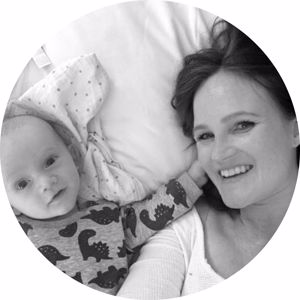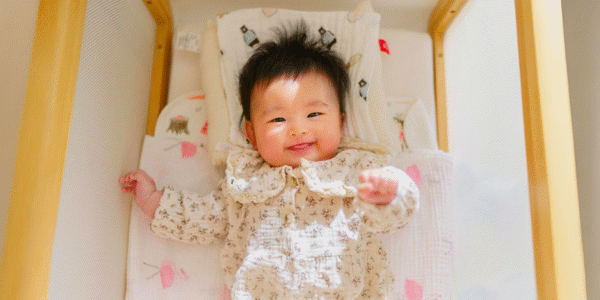The third trimester is the home stretch, often filled with anticipation, nesting, and, yes, a bit of impatience. Especially when those aches and pains start to ramp up.
At Wish I'd Known, we crowdsource real experiences – anonymously – from a large group of parents of 0–3-year-olds. Parents then see what the rest of the community is doing, feeling and experiencing. We cover a broad range of everyday topics, from toys to tantrums and milestones to mental health. And given the journey of parenthood begins well before a baby arrives in this world, we cover a lot on pregnancy too.
Click here to learn more about the Wish I'd Known community!
Here's a peek into what we've uncovered about the third trimester:
If you haven’t loved pregnancy, you’re not alone
Not everyone has a storybook experience with pregnancy. You might love the kicks and the glow, but struggle with discomfort and anxiety. It's okay to have a love-hate relationship with these transformative months. We found around half of parents enjoyed pregnancy most or all of the time, while 1 in 5 confessed they didn't really enjoy it.
Here’s what we found when we dug into experiences:
- Many parents cherished the physical connection they felt with their unborn child. One parent shared, "Loved feeling her kick and move in my belly, loved my bump and dressing it."
- Despite these joyful moments, pregnancy also brought physical discomfort for many. Some parents also noted pregnancy-related medical conditions that made the experience much more difficult, including hyperemesis gravidarum, tachycardia, SPD, cholestasis, and diabetes.
- Anxiety was another prevalent theme, with many parents expressing worry about their baby's health and the responsibility of carrying a child. One parent admitted, "I didn’t enjoy all the responsibility on me, e.g., if I didn’t feel the baby moving, and eating bad food and feeling guilty." Meanwhile, one parent touched on the anxiety caused by people's comments, saying "The amount of times someone said 'there's no way you're 7 months pregnant, you're tiny!' and it made me so stressed out worrying if my baby was small!"
- On the other hand, a few parents remembered the "special status" you're granted when pregnant, where one parent enjoyed "The kind wishes from strangers" while another noted "People are nicer to you."
- Work life was also mentioned as making the experience much harder, with one parent sharing "I vomited 3-4 times a day and was working full time at a high-pressure job."
- Nevertheless, amid the discomfort and anxiety, many parents touched on the happiness of being pregnant with a healthy baby, with one mother noting how it improved her mental health. Other parents remembered the joy in anticipating their baby's arrival.
On the stories shared, doula and lactation counsellors Candy and Tiffany from @likeasistersupport shared these wise words with us:
"So many first-time parents today are used to setting a goal and achieving measurable results. Parenthood, starting with pregnancy, is challenging because so much is out of our control. Educating ourselves on what’s normal is helpful, as is having a care team we trust. We advise our clients to invest time in finding the right support system so they can relax and soak in the parts of pregnancy they find enjoyable while leaning on others to help them get through the challenging parts (and we ALL have challenging parts, whether physical or mental!)."
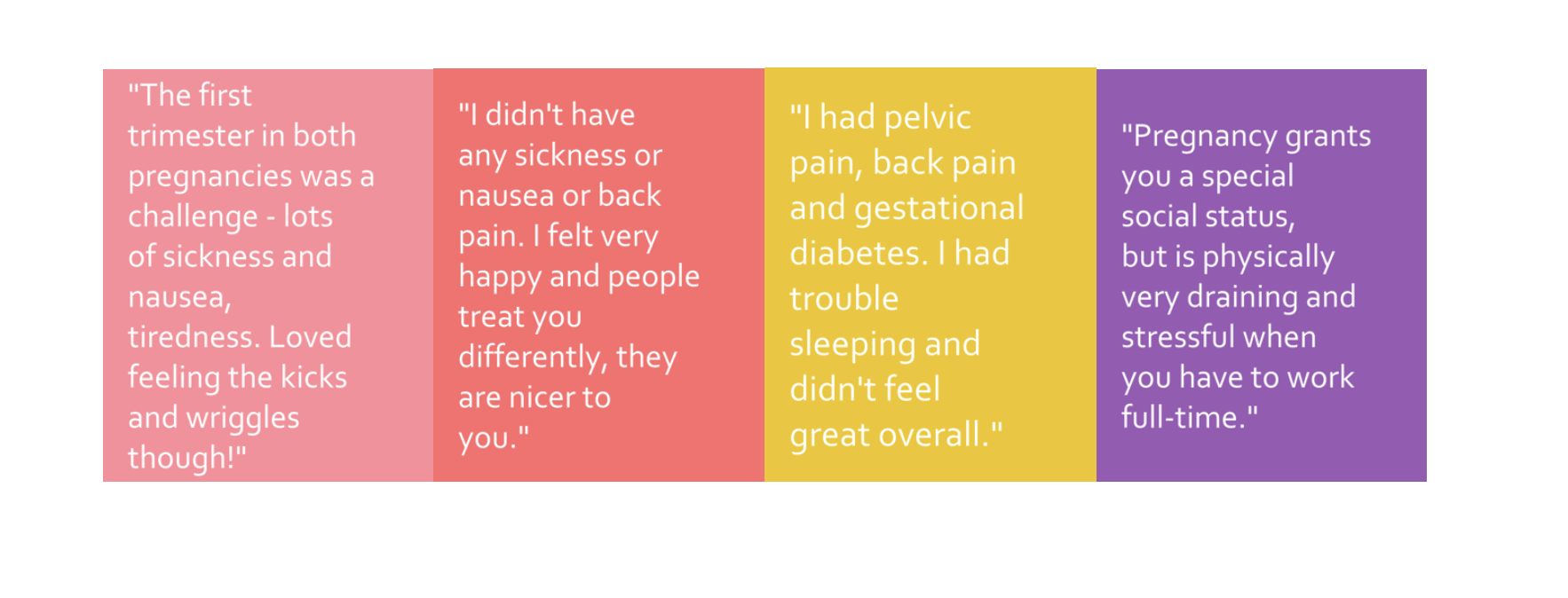
‘Baby brain’ is real
“Baby brain” – or "mum/mom brain" – is a term used by (often exhausted) new mothers to make sense of the brain fog that descends after kids. But as many pregnant parents will relate to, it starts before birth. Almost 4 in 5 parents felt more easily overwhelmed following the birth of their child, with a similar proportion experiencing memory difficulties.
However, how we react to these experiences can vary greatly. Over half of all parents felt frustrated by these symptoms, but there's also a sense of understanding and self-awareness. Around a third of parents acknowledged the need to take care of themselves better, while another third didn't feel strongly about it.
Baby brain is a very real phenomenon, with several factors being thought to contribute including hormonal changes, sleep deprivation, and stress. Some research (published in Nature Neuroscience in 2016) suggests that pregnancy also leads to structural changes in the brain, particularly in areas involved in processing social information, which could affect cognitive function. The changes are believed to enhance a mother's ability to sense her baby's needs and emotions.
It's clear that ‘baby brain’ is a common part of the parenting journey, but it's okay to feel frustrated or overwhelmed. And while it's important to laugh about these shared experiences, it's equally important to take care of ourselves and seek help if needed.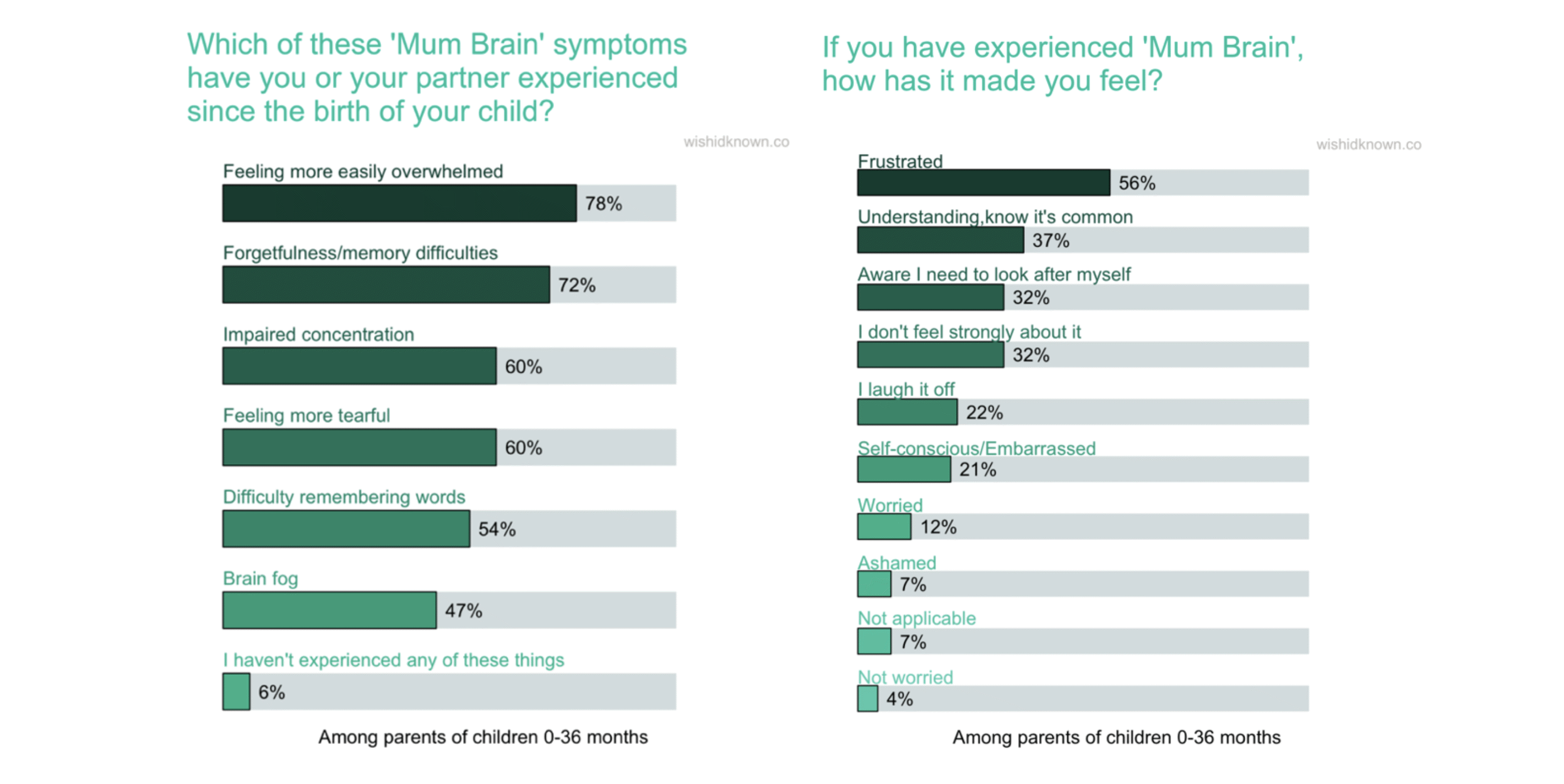
It’s normal to worry
For about 7 in 10 parents, counting kicks and not feeling them was a top worry. Around 3 in 5 were anxious about sleep positions, while general anxiety about the baby's health was a concern for about 2 in 5 parents.
As this shows, it's perfectly normal to have worries, but as always, open communication with healthcare providers can go a long way in soothing any anxieties.
<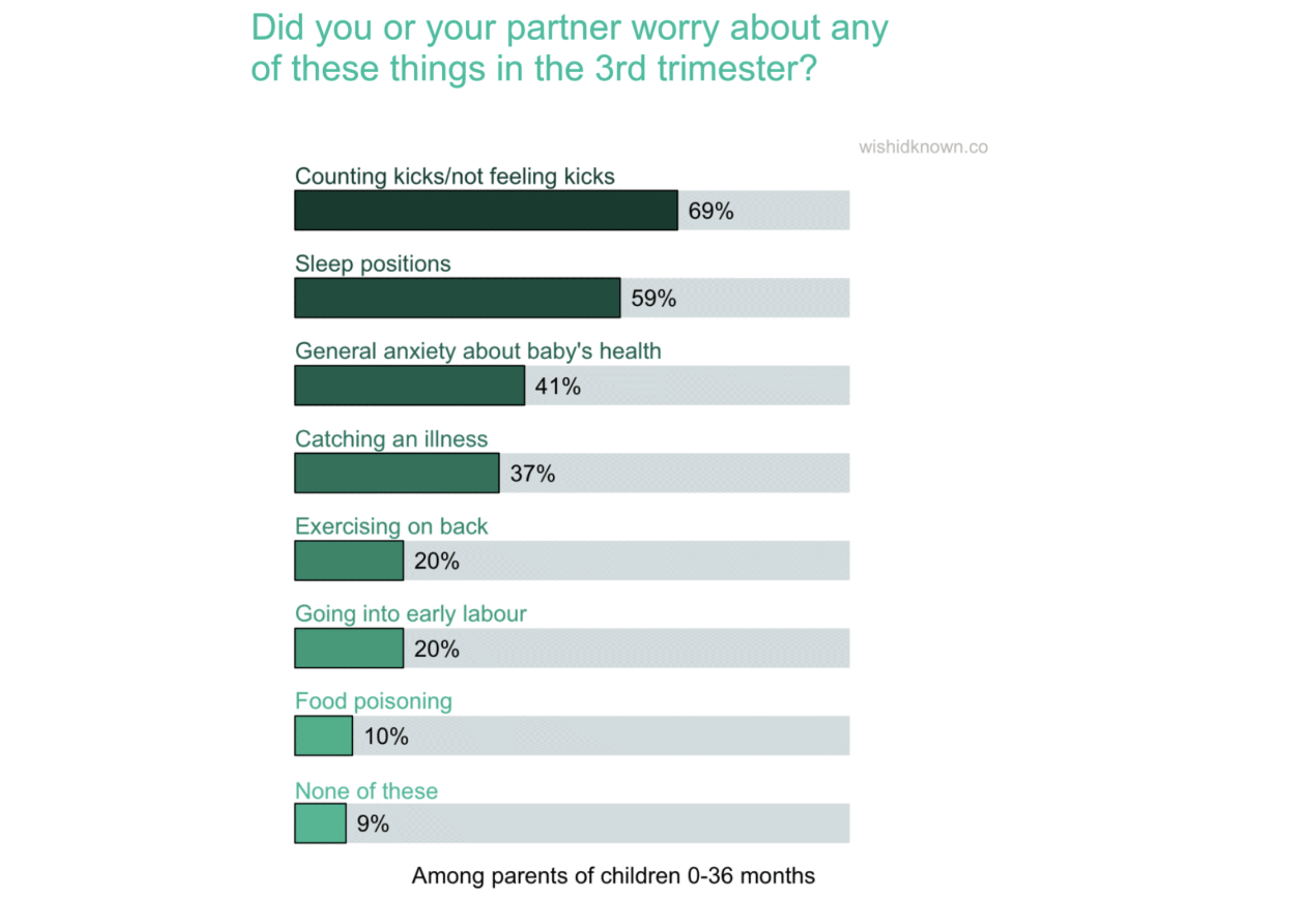
Birth experiences vary wildly – so try to take the pressure off
When we see birth on TV or in films, it often builds towards a moment of euphoria once the baby is out and placed in their parent's arms. This can leave many parents feeling like failures if it didn't quite happen that way for them.
We asked if our community members experienced an oxytocin high post-birth, and only around 1 in 5 had. A fair few felt positive but not euphoric, while a quarter didn’t experience a high and either felt nothing immediately or experienced negative emotions.
When we explored how parents felt about their birth after the event, it was encouraging to see over half mentioned pride and gratitude. Feeling fortunate, content, and happy also scored highly. However, it’s crucial to recognize that not every birth story unfolds smoothly. A notable portion of parents have shared feelings of trauma or anxiety, underscoring the unpredictable nature of childbirth.
It's worth remembering that societal narratives often paint an idealised picture of what birth 'should' look like, and it can be challenging when our own experiences don't align with these expectations. But every birth is unique, and deviations from the 'plan' are about what's safest for mother and baby. It's perfectly okay to feel a range of emotions about your experience. It doesn't reflect how you will bond with your baby in the long term.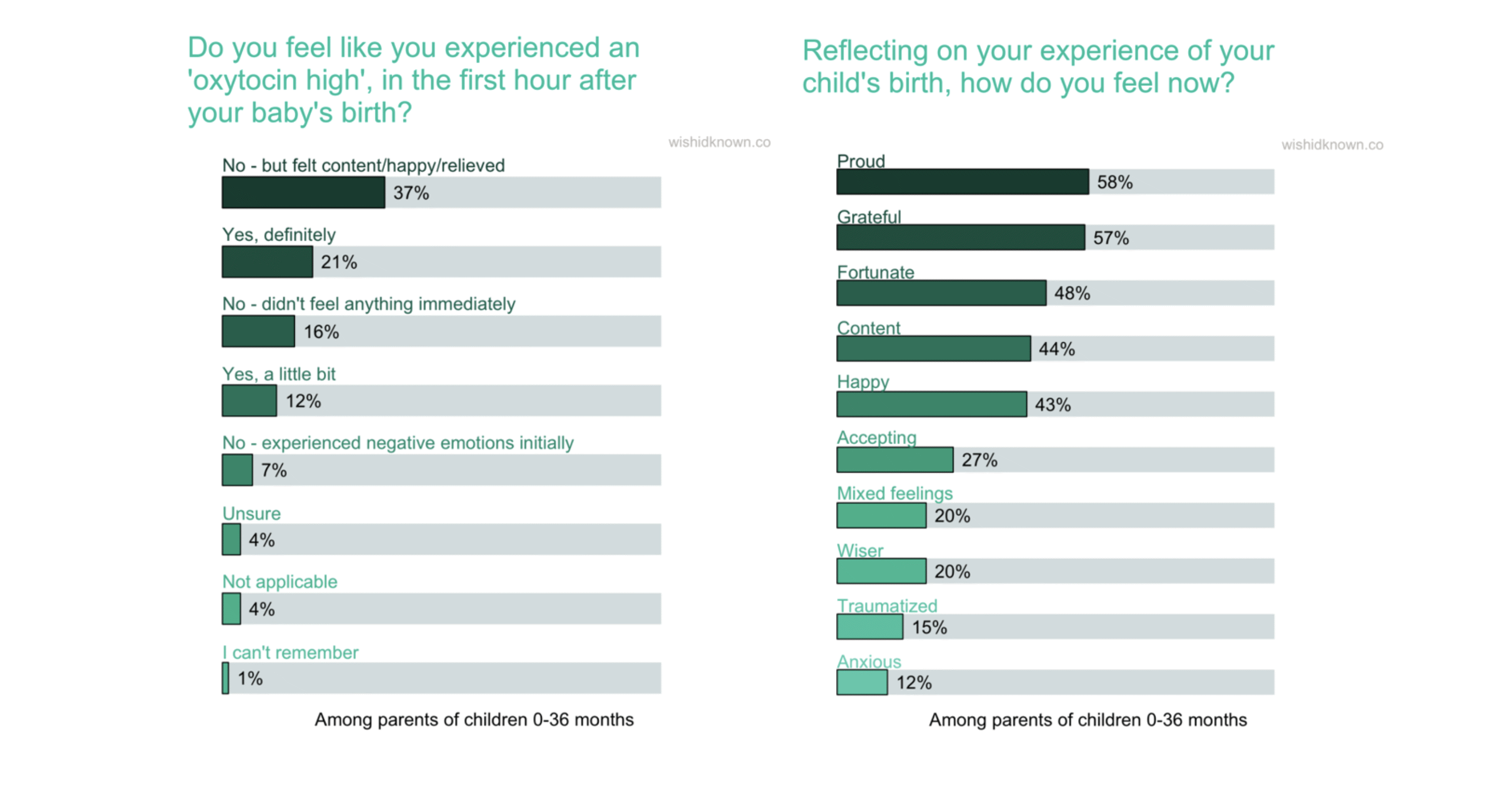
There can be a significant margin for error with baby size estimates
Pregnancy often brings unexpected twists and turns. When it comes to concerns about a baby's size during pregnancy, it appears that over a third of parents were informed by their healthcare provider about potential issues. Interestingly, these concerns often turned out to be unfounded. In fact, for nearly three-quarters of parents who had concerns raised, the estimates were not correct based on their baby's size at birth.
Ultrasound measurements, especially towards the end of pregnancy, can be inaccurate due to several factors, including the position of the baby, the amount of amniotic fluid, the mother's body shape, and the skill of the person performing the ultrasound.
Of course, our healthcare providers have a duty to spot potential problems, and they provide advice to the best of their knowledge. But it raises the question of whether the range of uncertainty could be better communicated. As always, open communication with your healthcare provider goes a long way to understanding and navigating this sort of advice.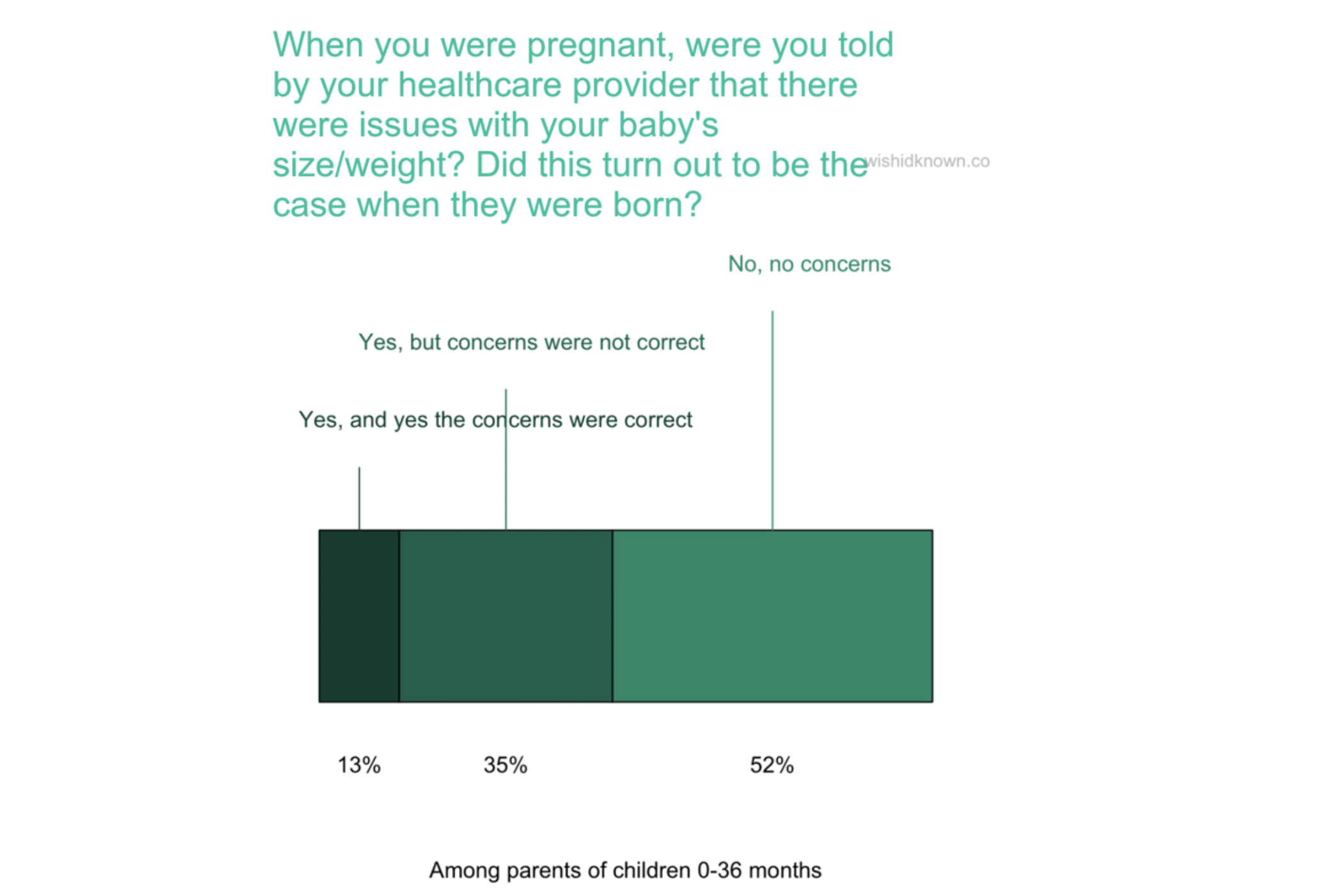
Our mission at Wish I’d Known is to reassure parents and normalise parenting ups and downs. We hope these insights from our community offer comfort and camaraderie.
If you're curious to see more from our free community and add your voice, we’d love it if you joined us!

